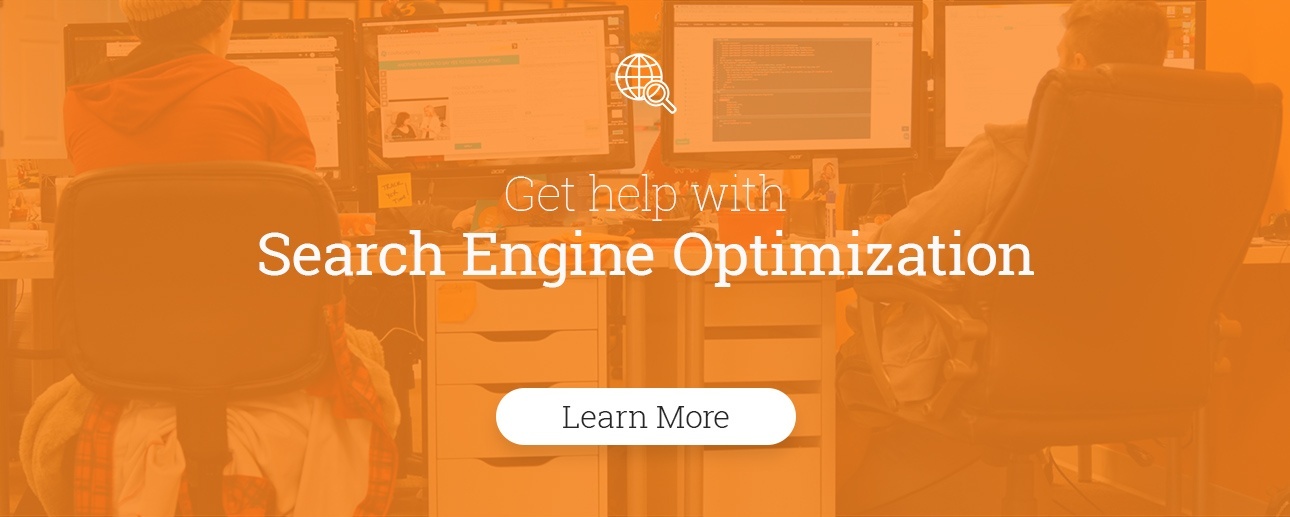First off, what even is SEO? You may have randomly heard the term from a friend, know that it's how search engines rank you, and even a few ways to improve yours. But did you know that about 90% of all searches end at the first page of results and around 30% never even make it past the first result. But what exactly is this magical little 3 letter key to hearts of the searching masses?
Well to summarize, its a series of attributes that search engines like Google examine within the HTML (code) of your site to ensure it is a search result worthy of the masses. And unlike the past, Google has become very adept at recognizing when sites are attempting to game the system and will punish accordingly. So stick out the journey it will take to reach those top spots and here are 6 things that could be holding you back.
1. Your long-tail/short-tail keywords need work or don't exist
One of the best ways for search engines to interpret the topic of the content on any given webpage are the reoccurring phrases and variations of them that you use. These keywords should be targeted at what your content delivers and have a healthy balance of being long enough to avoid competition with every brand with any similarity, yet short enough to avoid losing leads to over specificity.
One of the cardinal sins that people run into here is stuffing keywords into every nook and cranny. Google can easily recognize improper or unnatural use and it will have the opposite effect of what your shooting for.
2. Your Metadata needs to be updated
Metadata is a pretty basic but key tool in keeping for SEO optimized. Metadata is simply information that isn't visible to your site visitor on the front end but lets search engines now what your page is about and are found in the "<head>" tags of your site. If your using a CMS tools such as Hubspot, the page's title and description are prominently displayed on the settings tab of the page editor. On others, you may have to edit them straight in the header of your html.
One thing to note that has actually changed over the last few years is that meta keywords have actually become useless and are given no weight by most search engines.
3. Your page content needs to be search friendly
Certain styles and animations can also play a role in your pages SEO qualities. For instance, lets say you have a "Read More" button on your blog article which loads more content. Well, whereas Bing and Yahoo will read the hidden text with the same weight as the preview, Google actually gives hidden content less weight when its judging the relevance of your page to any given search.
This means that regardless of whether you have those hidden sections to detect user interaction, cleanup a busy page or whatever other reason, you should consider something more along the lines of an overlay. This is especially true if the content your hiding supports the keywords your targeting.
And remember to keep those image alt tags relevant and natural. Not only do these continue to help search engines understand your page, but also a key accessibility concern to help your disabled/impaired visitors.
4. A lack of inbound and outbound links
Just as word of mouth can be a powerful tool, so too can the authority of relevant links. Inbound links can help point the visitor to other relevant content while maintaining their continued attention on your site. This links your pages authority together and means that as the linked page grows in authority so does your current page's as well. As a general rule, its generally best to shoot for 2 or 3 links minimal if possible while more than 2
Another form of linking are outbound links. While some might argue that this encourages users to leave your site, it is actually a very common practice that google reads as confidence in your content and adds to your authority. You can read more about the pros and cons of it here. Just make sure that your outbound links open in a new tab by selecting it if there is an option or adding "target="_blank" to the anchor tag. After all, you don't want to be sending away those hard earned leads now do you?
5. Put out relevant content regularly
This may seem like both the most obvious and yet often the most difficult way to improve your SEO and site traffic. Want more people to see your site? Give them more doors to enter by! Seems fairly straight-forward. But what people also forget is that on top of the demanding timing is everything. The initial burst of views on a post can greatly help its continued interaction, and timing is something your personas will help with.
Are your persona's 9 to 5'rs who crash on the couch when they get home and read some blogs? Or the kind who get to work early just to catch up on their emails and the latest news? Whatever the case, you should be trying to launch when you believe you can garner the most engagement.
6. Optimize your page loading speeds
One of the fastest ways to lose your SEO standing with Google is by having long page load times. This is actually a double hit on your ranking because not only does Google recognize your load speed but so do users. And in the age of instant service nothing loses a visitor faster than having to wait for a page to load. This then snowballs as Google sees that your visitors "dwell time" is severely lacking as the visitor instantly backs to check the next result instead. In fact, in the last year Google has actually boosted this metrics importance so this is definitely one to keep your eye on.
There are many ways to help with load speed but some of my personal recommendations are:
- Post load any scripts not affecting initial appearances at the end of the body before the footer (or asynchronously load)
- Post load content below the fold (initially seen content in window) not relevant to page SEO.
- Optimize your images (2000px max for full width, 600-1000px for images in content). This can be one of the easiest but most common factors for long load speed.
Getting to the top spots is a journey, not a sprint
It will take some time to garner the regular traffic your aiming so be patient. There are a lot of companies offering "Instant SEO Success!" But be wary, site 'steroids' are much the same as the real ones offering a temporary boost in traffic, but as search engines catch on to the ploys, nothing could kill your long term goals faster. Stay clean, stay positive, and get that site SEO optimized! </end>
 Remington Begg
Remington Begg